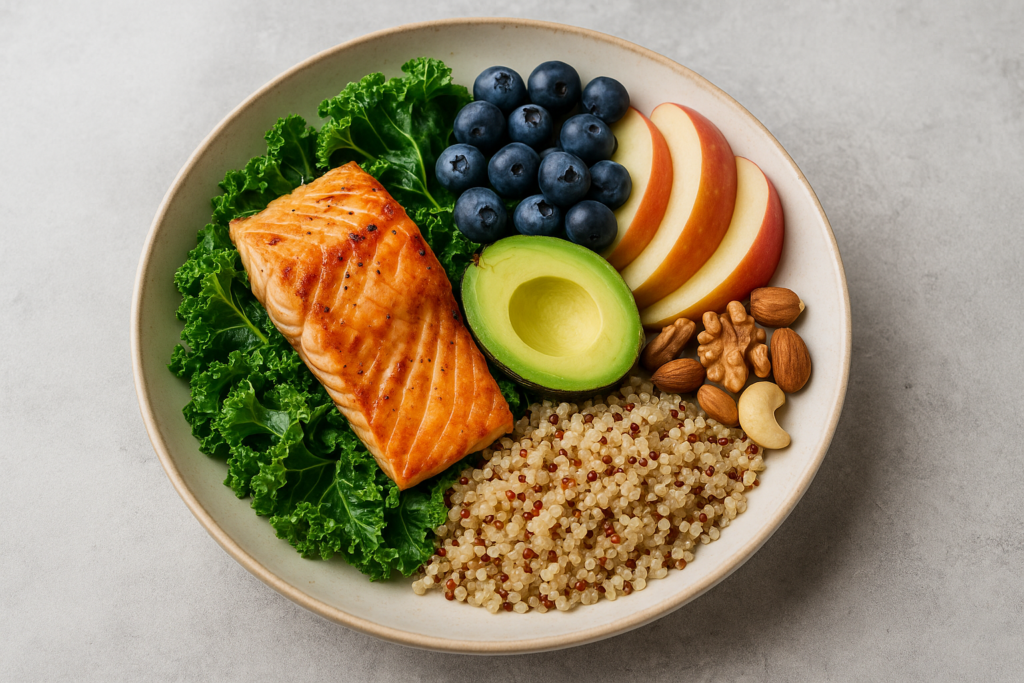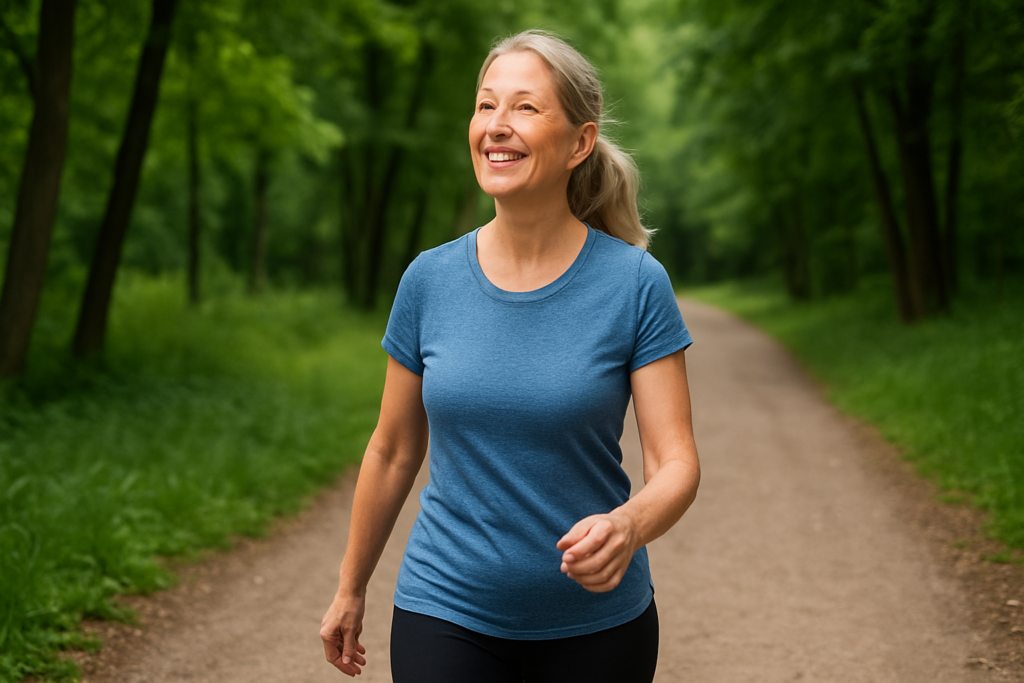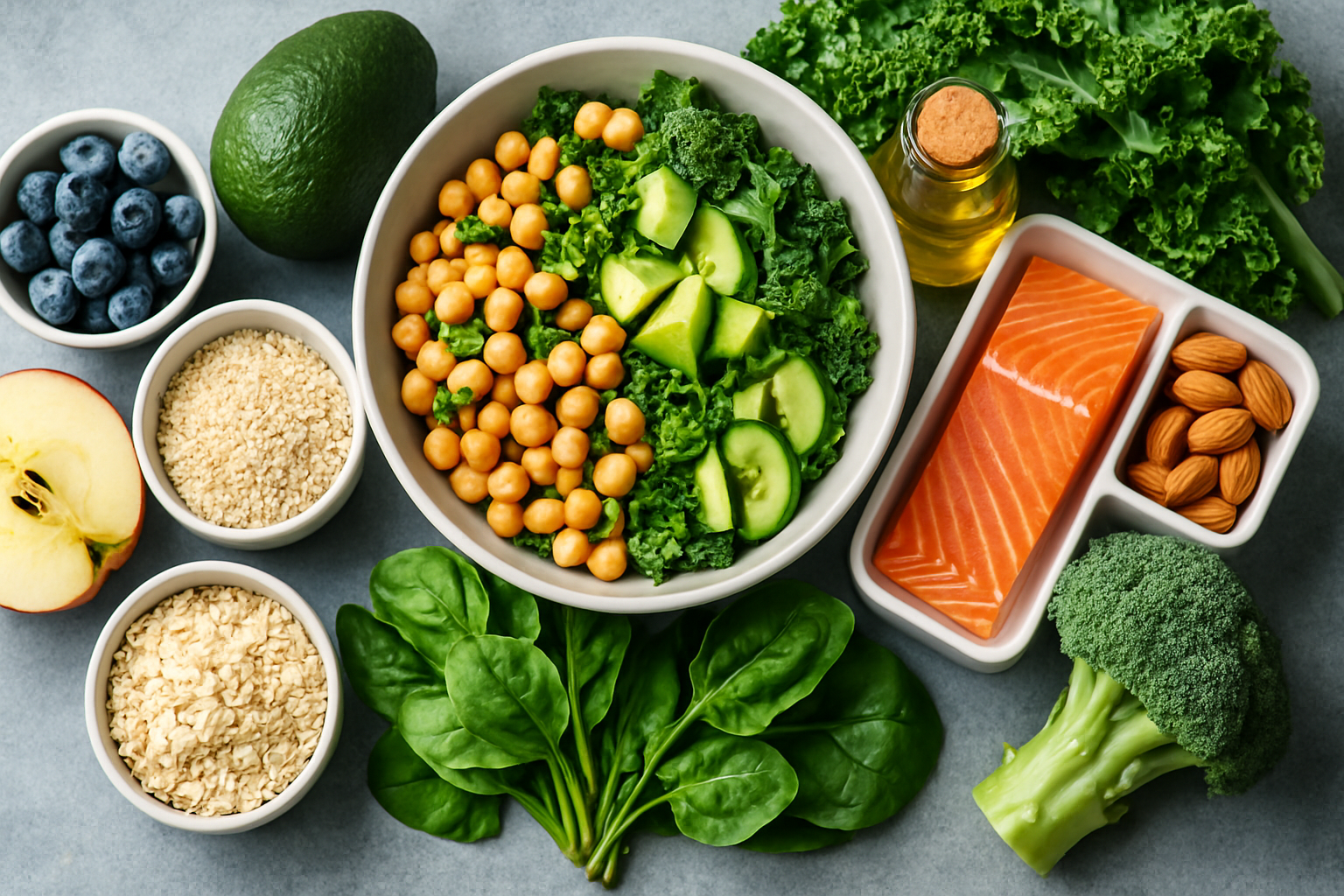5 Tips to Reverse Type 2 Diabetes Naturally
To reverse type 2 diabetes naturally is a realistic goal when individuals commit to meaningful lifestyle changes. Although many believe diabetes is irreversible, research shows it’s possible to control — and even reverse — its effects through healthy habits and consistency.
This article presents 5 evidence-based, practical tips to help you take back control of your health, starting today.
Understanding Type 2 Diabetes
What is type 2 diabetes?
Type 2 diabetes occurs when the body can’t properly use insulin — the hormone responsible for regulating blood glucose. This condition, called insulin resistance, causes sugar levels to rise and can damage organs and tissues over time.
What is prediabetes?
Prediabetes is an early warning sign. Blood sugar levels are elevated but not high enough for a diabetes diagnosis. At this stage, it’s often easier to reverse type 2 diabetes naturally because the body still responds well to lifestyle adjustments.
Risk factors
Several factors increase the risk of developing type 2 diabetes:
- Physical inactivity
- Diet high in refined carbs and sugar
- Overweight or obesity
- Family history
- Chronic stress
Understanding these risks is the first step. Managing weight, nutrition, and physical activity is essential for prevention and reversal.
Tip 1: Follow a Low-Glycemic Diet

One of the most effective ways to reverse type 2 diabetes naturally is by changing your diet to focus on low-glycemic foods. These foods release glucose slowly, preventing blood sugar spikes.
Recommended foods
Include the following in your meals:
- Legumes: lentils, beans, chickpeas
- Leafy greens and vegetables: kale, spinach, broccoli
- Low-GI fruits: berries, avocado, apples with skin
- Whole grains: quinoa, oats, brown rice
- Healthy fats: olive oil, avocado, nuts
These help stabilize glucose levels and support weight loss — both critical for reversing diabetes.
Foods to avoid
Avoid or minimize:
- Refined breads and pasta
- Sugar and processed sweets
- Soft drinks and artificial juices
- White potatoes and white rice
These foods cause rapid blood sugar increases and worsen insulin resistance.
The role of fiber and proper food combinations
Fiber slows carb digestion. Combining carbs with protein and healthy fats also reduces glucose impact. For example, pairing an apple (carb) with almonds (fat) has a different effect than eating the apple alone.
By adopting these principles, the body becomes more insulin-sensitive and regains metabolic balance.
Tip 2: Exercise Regularly

Physical activity is a powerful tool to reverse type 2 diabetes naturally. It improves insulin sensitivity, lowers blood sugar levels, and directly enhances metabolic health.
Proven benefits
Regular exercise:
- Improves glucose uptake by muscle cells without insulin
- Burns calories, aiding weight loss
- Reduces visceral fat, closely linked to insulin resistance
- Balances stress hormones like cortisol that affect glucose levels
Best types of exercise
The most effective options include:
- Aerobic exercises: brisk walking, light jogging, swimming, biking
- Strength training: builds muscle and boosts insulin efficiency
- Functional workouts: mix strength and endurance in short sessions
- Low-impact activities: yoga or Pilates for beginners and stress relief
Ideal frequency
Aim for at least:
- 150 minutes per week of moderate exercise, or
- 75 minutes per week of intense activity
Spread workouts throughout the week for consistency. Even daily 30-minute walks significantly improve blood sugar regulation.
Tip 3: Lose Weight in a Healthy Way
Losing weight is a key factor in efforts to reverse type 2 diabetes naturally. Even modest weight loss — 5% to 10% of your body weight — can produce substantial metabolic improvements.
How excess weight affects insulin
Abdominal fat releases inflammatory substances that impair insulin action. By reducing body fat, especially around the waist, you decrease insulin resistance and improve glycemic control.
Healthy weight-loss strategies
Avoid extreme diets. Instead, focus on sustainable habits:
- Reduce calorie intake, especially from sugars and refined carbs
- Increase protein and fiber consumption for satiety
- Eat smaller, frequent meals to avoid glucose fluctuations
- Avoid unnecessary snacking and emotional eating
Pairing these habits with regular exercise enhances results and promotes long-term success.
Set realistic goals
Losing 1 to 2 pounds (0.5–1 kg) per week is both healthy and achievable. The key is consistency, not speed. Sustainable change leads to real, lasting reversal of insulin resistance.
Tip 4: Manage Stress and Improve Sleep
Emotional well-being and quality rest are essential in efforts to reverse type 2 diabetes naturally. Chronic stress and poor sleep disrupt hormonal balance and impair glucose regulation.
How stress raises blood sugar
Stress triggers the release of cortisol and adrenaline, which increase blood sugar as a survival mechanism. For people with insulin resistance, this worsens the condition.
Effective stress-reduction techniques
- Meditation and mindfulness: foster awareness and calm
- Deep breathing: reduces nervous system overactivation
- Pleasurable hobbies: art, gardening, music, reading
- Nature exposure: walking outdoors enhances mood and lowers stress
The role of sleep in glucose control
Poor sleep — less than 6 hours or fragmented rest — directly raises insulin resistance and hinders glycemic control.
To improve sleep:
- Keep a regular sleep-wake cycle
- Avoid screens and blue light before bed
- Create a quiet, dark, and comfortable environment
- Avoid caffeine and large meals in the evening
Tip 5: Monitor Glucose Levels and Seek Professional Support
Frequent glucose monitoring is vital for anyone looking to reverse type 2 diabetes naturally. It helps track progress, identify patterns, and guide informed decisions.
Why monitoring matters
Regular glucose checks help you:
- Identify food-induced glucose spikes
- Evaluate the impact of exercise and sleep
- Detect imbalances early
- Adjust medications safely with medical supervision
Useful tools
- Mobile apps: MySugr, Glucose Buddy
- Manual tracking: printable or digital glucose logs
- Professional reports: help tailor personalized treatment
The role of healthcare professionals
Even natural strategies should be guided by professionals. Doctors and nutritionists can:
- Personalize diet and exercise plans
- Reduce or stop medications safely
- Monitor lab tests and inflammation markers
- Provide evidence-based advice
Support groups and peer communities also help with motivation and accountability.
Conclusion: Natural Reversal Is Possible with Consistency and Knowledge
To reverse type 2 diabetes naturally requires commitment, but it is achievable. Thousands of people have succeeded by adopting proven, sustainable habits and seeking professional guidance.
As reviewed in this article, it is possible to:
- Control your diet with low-glycemic foods
- Exercise regularly to improve insulin sensitivity
- Lose weight sustainably to reduce insulin resistance
- Manage stress and sleep better for hormonal balance
- Monitor glucose and seek support to stay safe and informed
If you or someone you love is living with prediabetes or type 2 diabetes, remember: meaningful change starts with small, daily choices. Reliable information, guided support, and persistence are the keys to transformation.
Internal Resources
- Recognize the warning signs before type 2 diabetes progresses
👉 Read: Type 2 Diabetes Symptoms: Identify the Warning Signs
Learn how to spot early symptoms of type 2 diabetes and why early diagnosis is critical for successful natural reversal. - Can prediabetes be reversed with lifestyle changes?
👉 Read: Can Prediabetes Be Cured? Scientific Insights and Solutions
Discover if prediabetes can be cured and which daily habits you can adopt to prevent progression to type 2 diabetes.
External Reference
👉 American Diabetes Association – Reversal of Type 2 Diabetes
Read ADA’s official guidance on how lifestyle changes can safely and effectively reverse type 2 diabetes.


No responses yet